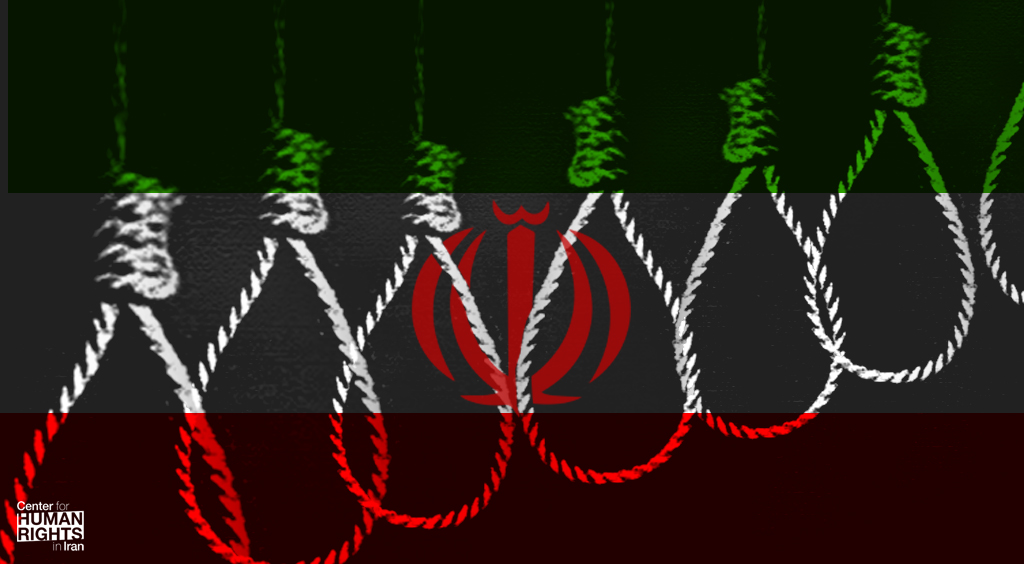World Leaders Urged to Radically Increase Pressure on Iran to Cease Executions

Islamic Republic Is Severely Violating International Laws Governing Death Penalty
Protesters Hanged After Sham Trials, Minorities Targeted for Capital Punishment
May 24, 2023 — In a letter delivered to 75 governments around the world today, the Center for Human Rights in Iran (CHRI) called on world leaders to radically increase pressure on the Islamic Republic to cease the flagrantly unlawful executions of protesters and others that are surging in Iran.
“The Islamic Republic is hanging young protesters—after torturing them into making ‘confessions’ and convicting them in sham trials—and targeting minorities for executions for lesser crimes, in order to cow its restive population into silence,” said Hadi Ghaemi, CHRI Executive Director.
“Unless world leaders join forces to raise the cost to the authorities in Iran of these state-sanctioned killings, which severely violate international laws governing the death penalty, the Islamic Republic’s killing machine will gather steam and more people will unjustly die on the gallows in Iran,” Ghaemi said.
The letter notes that seven protesters have already been hung and at least 49 face charges that carry the death penalty. This follows the killing of over 500 protesters (including 71 children) by state security forces, the maiming and blinding of untold others, the arrest of at least 22,000, and the torture and rape of detainees (including children). These atrocities have been described by the UN’s top expert on Iran as crimes against humanity.
CHRI’s letter calls on the governments to:
- Communicate directly to your Islamic Republic counterparts your government’s condemnation of these executions and warn clearly that intensified and severe diplomatic and economic isolation will follow the continuation of these abuses;
- Summon Iranian ambassadors to directly communicate this condemnation and warning;
- Make public statements, unilaterally and in bilateral and multilateral forums, including press conferences and upcoming meetings of the OECD and UN General Assembly, forcefully condemning these executions;
- Actively work with allies, partners and other governments to advance joint initiatives that impose diplomatic and economic consequences for these unlawful executions;
- Pursue accountability for these abuses via the principle of universal jurisdiction, in which states can criminally investigate and issue arrest warrants for Iranian officials responsible for international crimes.
The full text of the letter sent to the foreign ministries and embassies of 75 governments follows below:
We are writing to you with the utmost urgency regarding the alarming surge in executions of protesters in Iran which are being carried out in flagrant violation of international laws that govern the application of the death penalty.
Protesters are being hanged in Iran after fast-tracked prosecutions and sham trials in which defendants are denied independent counsel and convictions are based solely on “confessions” extracted under torture.
Seven protesters have been executed since protests erupted across Iran in September 2022, and at least 49 are facing the death penalty. Together with the killing of over 500 protesters (including 71 children) by state security forces, the maiming and blinding of untold others, the arrest of at least 22,000, and the torture and rape of detainees (including children), these atrocities have been described by the UN’s top expert on Iran as crimes against humanity.
In addition, hundreds are being executed in Iran for drug crimes that do not meet international standards that allow capital punishment only for the most serious crimes, and minority populations are being targeted for those executions.
This is state-sanctioned murder under any other name. Unless governments worldwide communicate to the Islamic Republic the unacceptability of these executions and radically increase pressure on the authorities in Iran to stop them, more people will be hanged.
The Center for Human Rights in Iran (CHRI) urgently calls on your government to:
-
- Communicate directly to your Islamic Republic counterparts your government’s condemnation of these executions and warn clearly that intensified and severe diplomatic and economic isolation will follow the continuation of these abuses;
- Summon Iranian ambassadors to directly communicate this condemnation and warning;
- Make public statements, unilaterally and in bilateral and multilateral forums, including press conferences and upcoming meetings of the OECD and UN General Assembly, forcefully condemning these executions;
- Actively work with allies, partners and other governments to advance joint initiatives that impose diplomatic and economic consequences for these unlawful executions;
- Pursue accountability for these abuses via the principle of universal jurisdiction, given the systemic impunity for even the most severe crimes committed by the Islamic Republic, which include the torture and rape of detainees (including children), enforced disappearances, the killing of hundreds of peaceful protesters by security forces, and fast-tracked executions after grossly unfair trials.
The Islamic Republic is carrying out these executions behind a façade of judicial proceedings that make a mockery of any standard of justice in order to cow its restive population into silence. International law on this is clear, as stated recently by the UN Human Rights Council’s Fact-Finding Mission: “Any execution following a fair trial violation would amount to arbitrary deprivation of life and a violation of international law.”
In sum, there is a mounting crisis in Iran, where the state is arbitrarily and unlawfully using the death penalty to intimidate the citizenry and silence dissent.
We urge you to impartially and rigorously stand by the international laws that govern the application of the death penalty by joining with other governments to exert significantly increased pressure on the authorities in the Islamic Republic to stop these killings.
Hadi Ghaemi
Executive Director
Center for Human Rights in Iran
The 75 countries that this letter was sent to, which include all the members of the UN Human Rights Council, are as follows:
- Algeria
- Argentina
- Australia
- Austria
- Bangladesh
- Belgium
- Benin
- Bolivia
- Brazil
- Bulgaria
- Cameroon
- Canada
- Chile
- China
- Colombia
- Costa Rica
- Côte d’Ivoire
- Croatia
- Cuba
- Cyprus
- Czech Republic
- Denmark
- Eritrea
- Estonia
- Finland
- France
- Gabon
- Georgia
- Germany
- Greece
- Honduras
- Iceland
- India
- Ireland
- Italy
- Japan
- Kazakstan
- Kyrgykstan
- Latvia
- Lithuania
- Luxembourg
- Malawi
- Malaysia
- Maldives
- Malta
- Mexico
- Montenegro
- Morocco
- The Netherlands
- Nepal
- New Zealand
- Nigeria
- Norway
- Paraguay
- Poland
- Portugal
- Romania
- Senegal
- Slovakia
- Slovenia
- Somalia
- South Africa
- South Korea
- Spain
- Sudan
- Suriname
- Sweden
- The Vatican
- Turkey
- United Kingdom
- Ukraine
- United States of America
- Uzbekistan
- Venezuela
- Vietnam






